Mental health week: How drawings on social media are changing the conversation
- Published
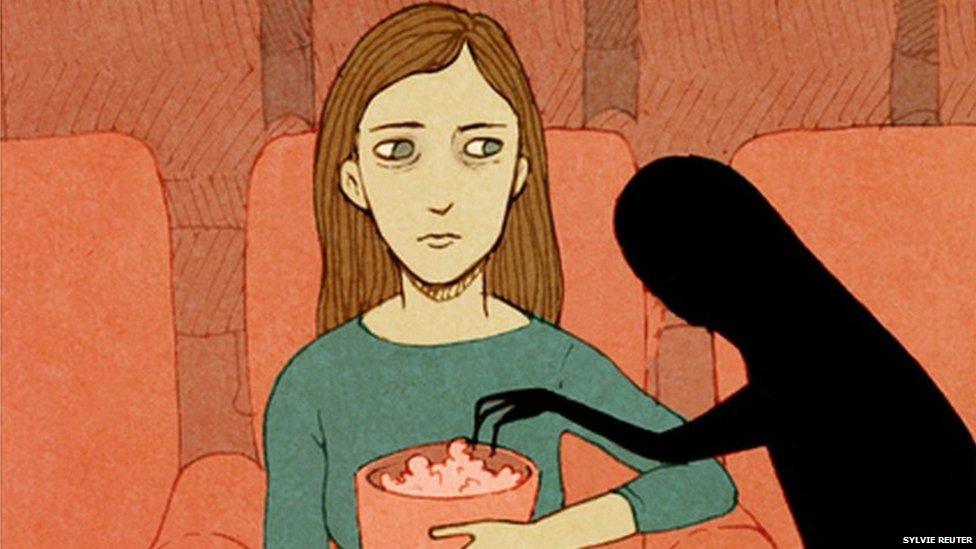
Online comics about mental health are helping to change the way we talk about these illnesses, according to illustrators.
People feeling isolated and struggling to find the right words to open up about their illness are finding support through drawings, according to artists who have seen their work go viral.
The comic below is one example.
It's the work of an illustrator known as Robot Hugs or RH.
They drew this strip, called "Nest" three years ago. Since then it's been shared millions of times.
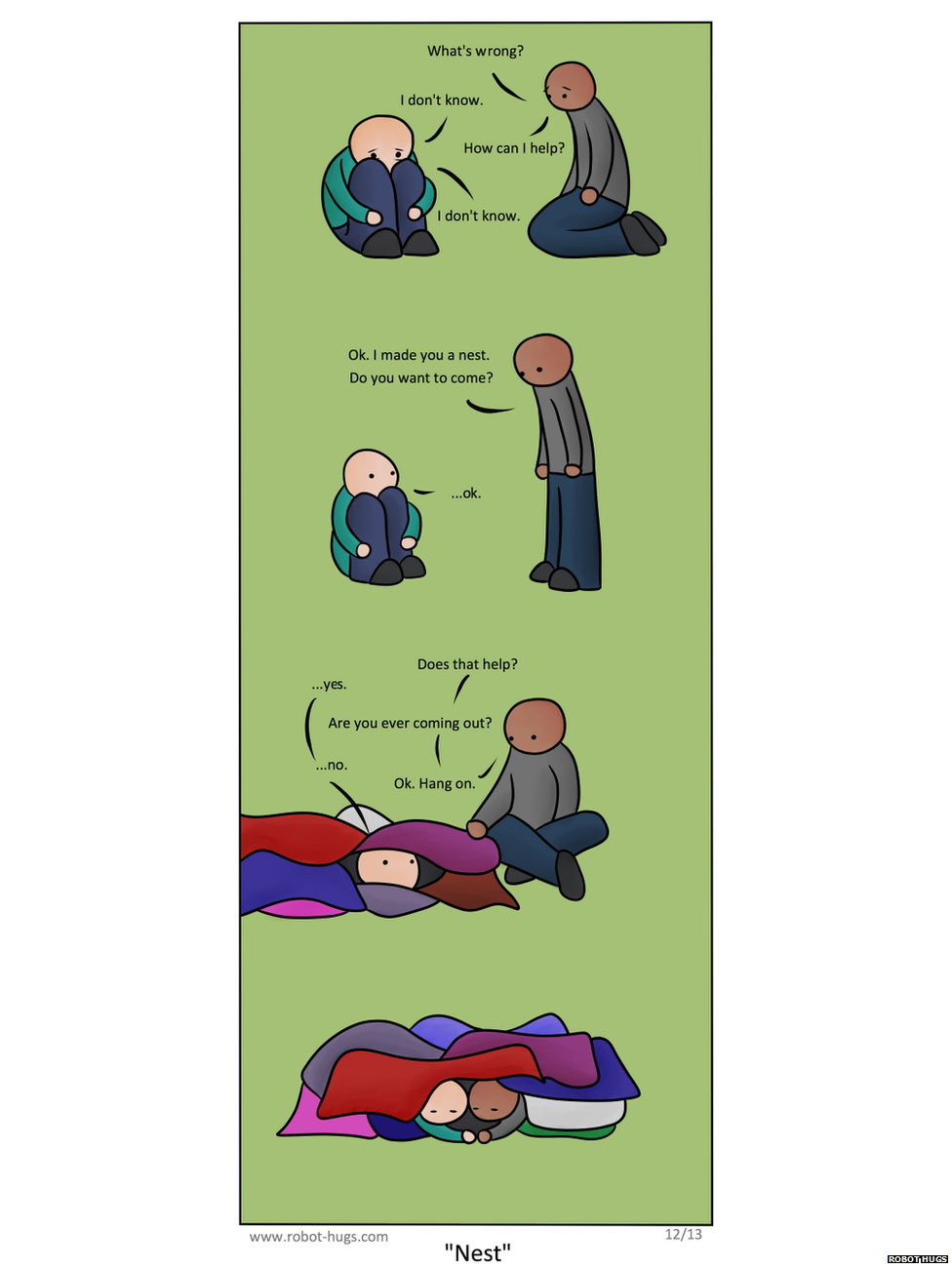
The artist tells Newsbeat: "I wasn't really drawing it for anybody else but obviously it has a deep resonance.
"It gets me a lot of emails, and they are the sweetest emails.
"A father with a youngish child who went through very dark depressive episodes emailed, saying, 'I always tried to figure out what I could do to help stop him feeling this way.
"Eventually I saw the comic and showed it to him and I said, 'Is this what it feels like?' He said, 'Yes,' and now I just build him a nest and make sure he's got a place he can be OK till he feels a little better, and that's really helped my communication and relationship with him.
"That was incredible to receive."
The below comic is one drawn by Robot Hugs, external too.
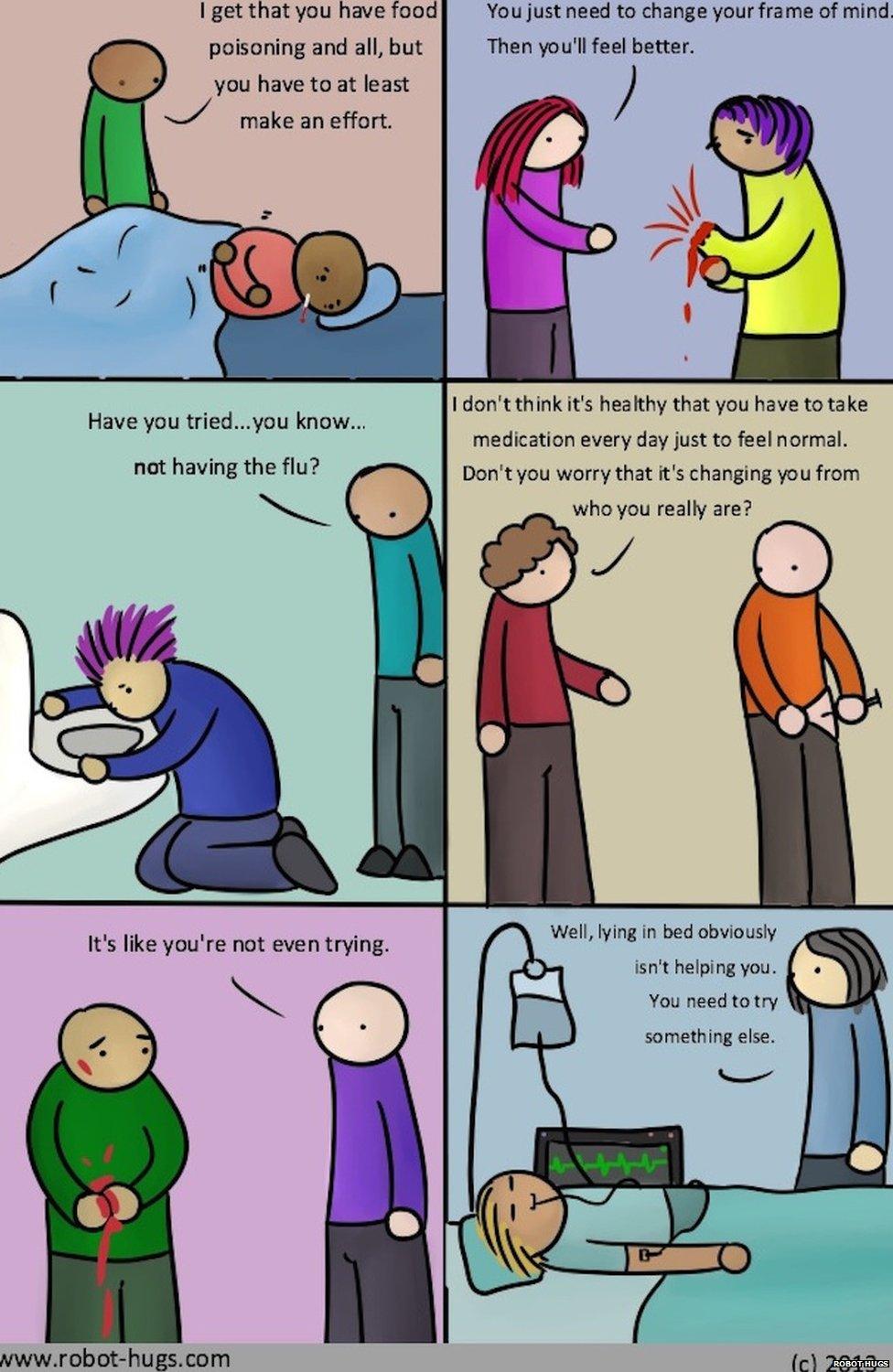
'People still need to tell people that their mental illnesses are legitimate conditions' says Robot Hugs
Pictures on social media are a lot more accessible, says Robot Hugs.
"There's a lot of writing out there about mental illness and how to support someone but it can be hard to ask someone to go to the labour of reading a lot of text. Everyone's got 10 seconds to look at a comic.
"Over and over people who have mental illness email me saying, 'When I share this with people I'm telling them this is how you can help me.'
"It gives them another tool which can get them support they need."
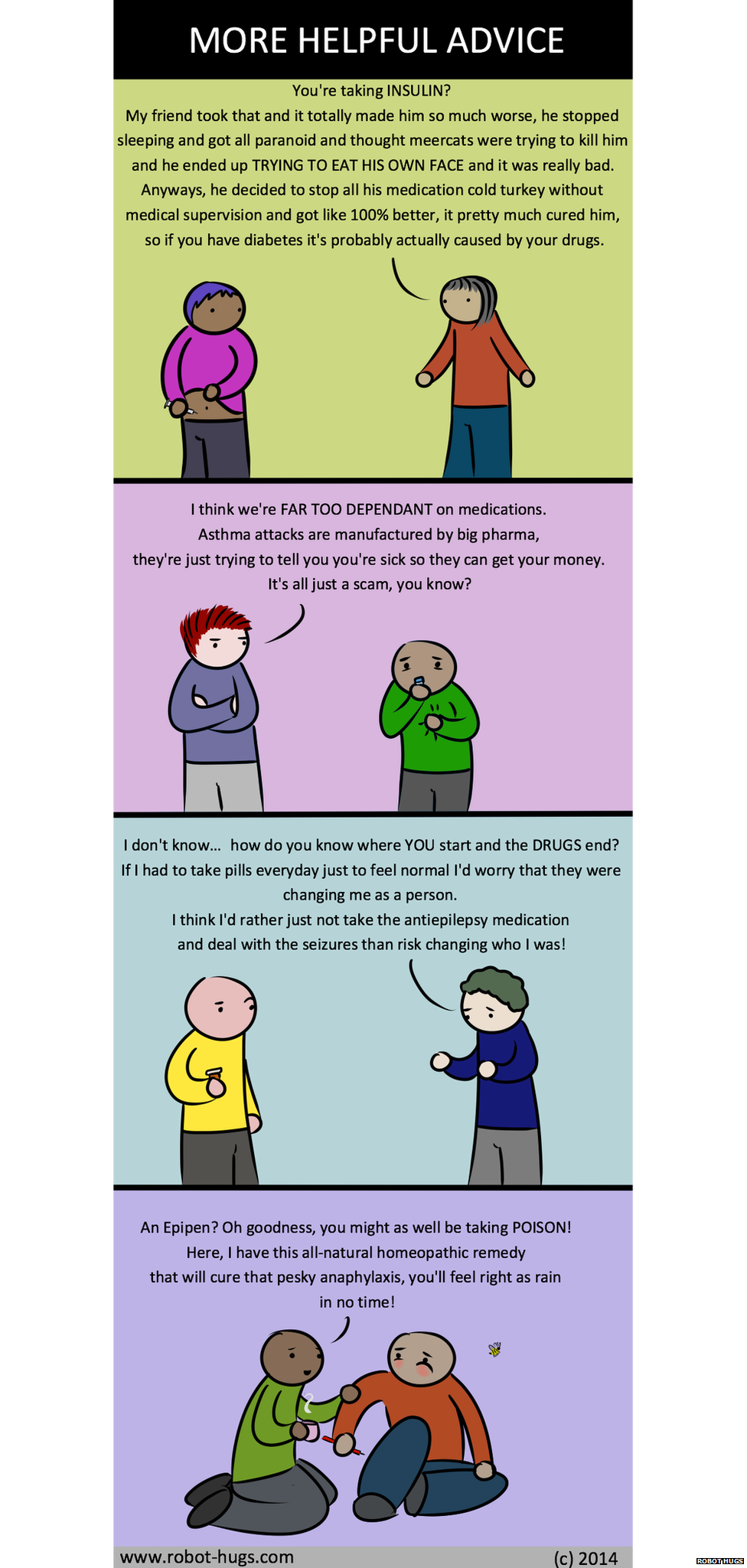
Social media can play an important role in helping change the conversation.
"It's allowing us to tell and create our own stories about what mental illnesses feel like and how we need support. We don't see accurate representations of mental illness in TV shows and movies all the time," explains the artist.
Sylvie Reuter, a German cartoonist who drew the below comic, agrees.
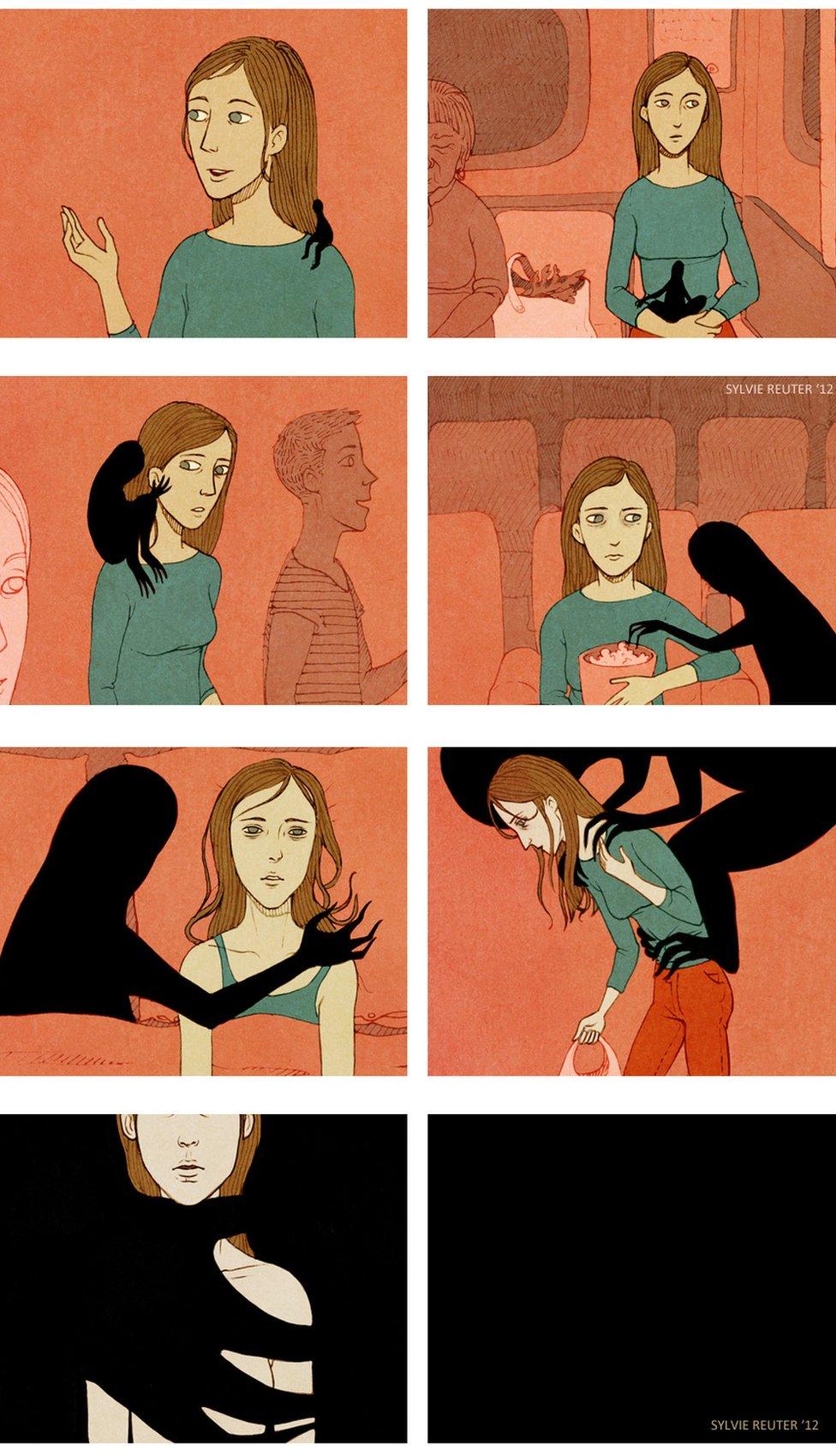
She tells Newsbeat: "Mental health is still something that is stigmatised and rarely talked about in public. But online it's different, you can share your thoughts and you can do it anonymously and that way it's easier for people."
Robot Hugs describes that process as a "bit like coming out".
"It's almost like being queer, or gender queer, you have to practise having these conversations and understanding yourself before you can bring them out into the real world."
Ruby etc is another cartoonist who draws on mental health.
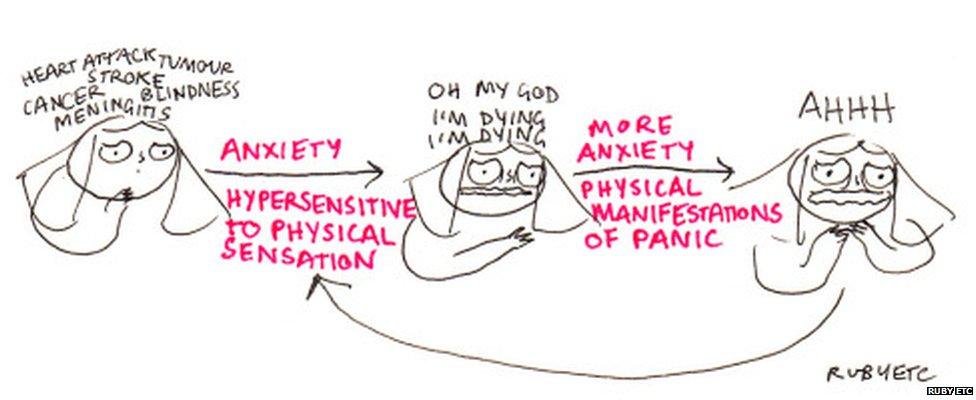
Drawing how hypochondria feels
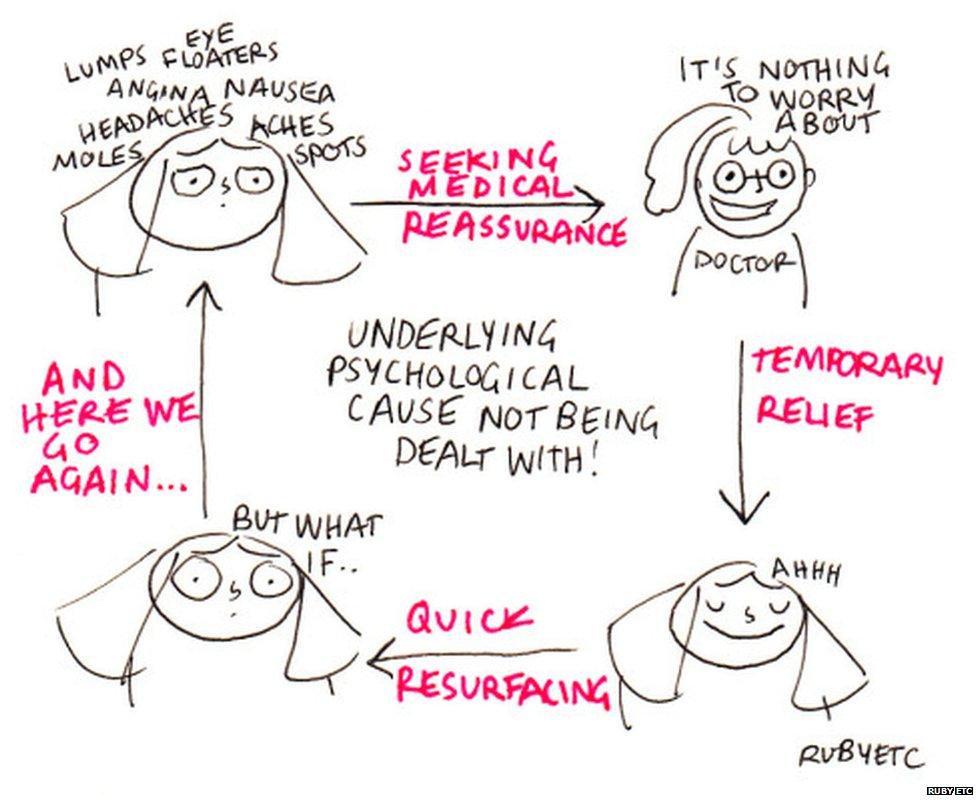
Talking about hypochondria
She first started doing it to communicate with other people because "one of the biggest things about mental illness is the awful isolation".
"Drawing was my way of connecting with people in a way that meant I didn't have to leave the house or see people face to face.
"There were times when that was physically impossible because my anxiety was so bad or I was just too depressed."
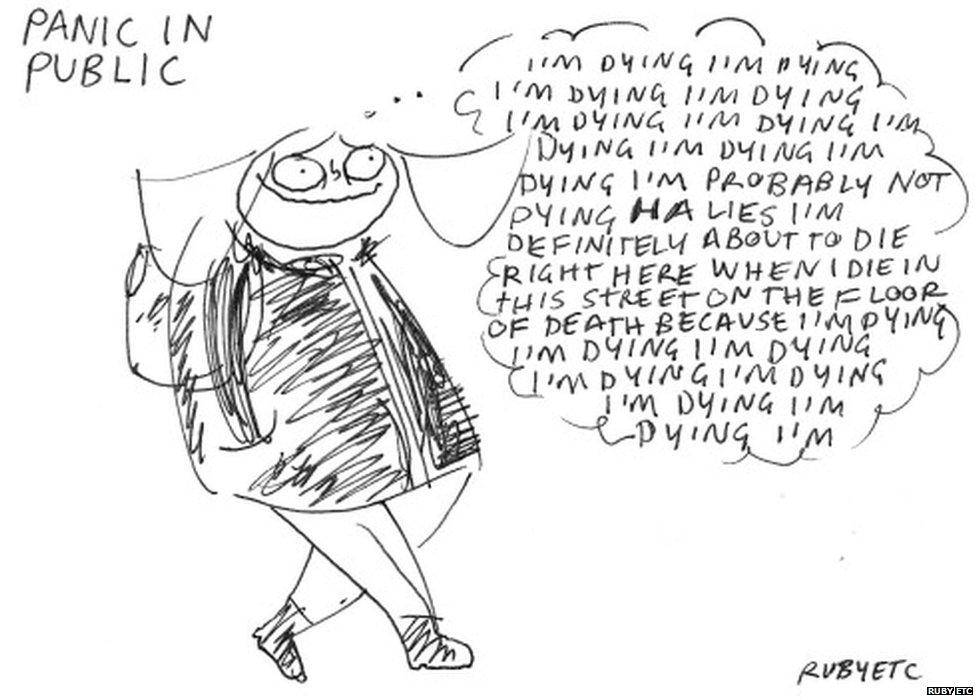
She says her drawings aim to "talk about it in a way that's honest. There's a lot of imagery and writing out there that's very positivity-centred and not enough credence is given to the distress of it."
Ruby also uses humour to make her point. , external
Both Robot Hugs and Ruby etc think the conversation needs to be broader.
"It's our collective responsibility to all think about it and not do that thing where we pretend everything is fine the whole time, because it often isn't," says Ruby.
She also thinks more needs to be done to tackle "scarier" mental illnesses.
"At the moment the predominant themes people are discussing are depression and anxiety which are fantastic but I think there's a danger now that we equate all mental health issues with these and a lot of the time what I will draw about are the 'scarier' aspects because there are a lot of things that are less palatable to some - OCD, bipolar, schizophrenia, psychosis, all those things, and it would be good to see more people explore those things."
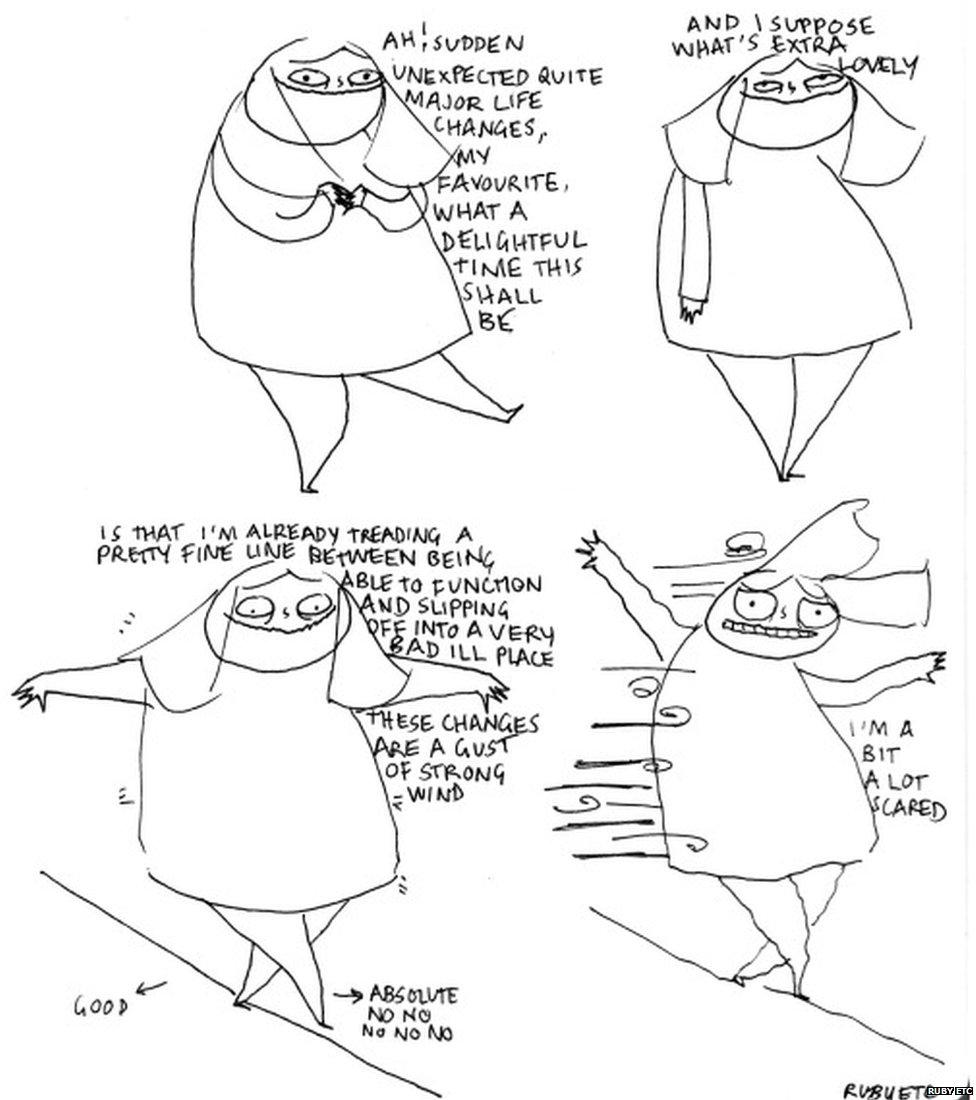
Robot Hugs agrees.
"We need to talk about the ones that people are frightened of, more stigmatised illnesses like schizophrenia. My dermatillomania,, external my skin picking disorder is debilitating sometimes but it's also one I have a lot more trouble talking about because it's weirder and it's grosser and it's not something that everybody really deals with. I mean some people chew their nails but I rip chunks of skin off my body.
"I have a lot more trouble talking about that in these online spaces. That said, when I do, I get a lot of positive feedback, so the ones we don't talk about are the ones we need to talk about most."
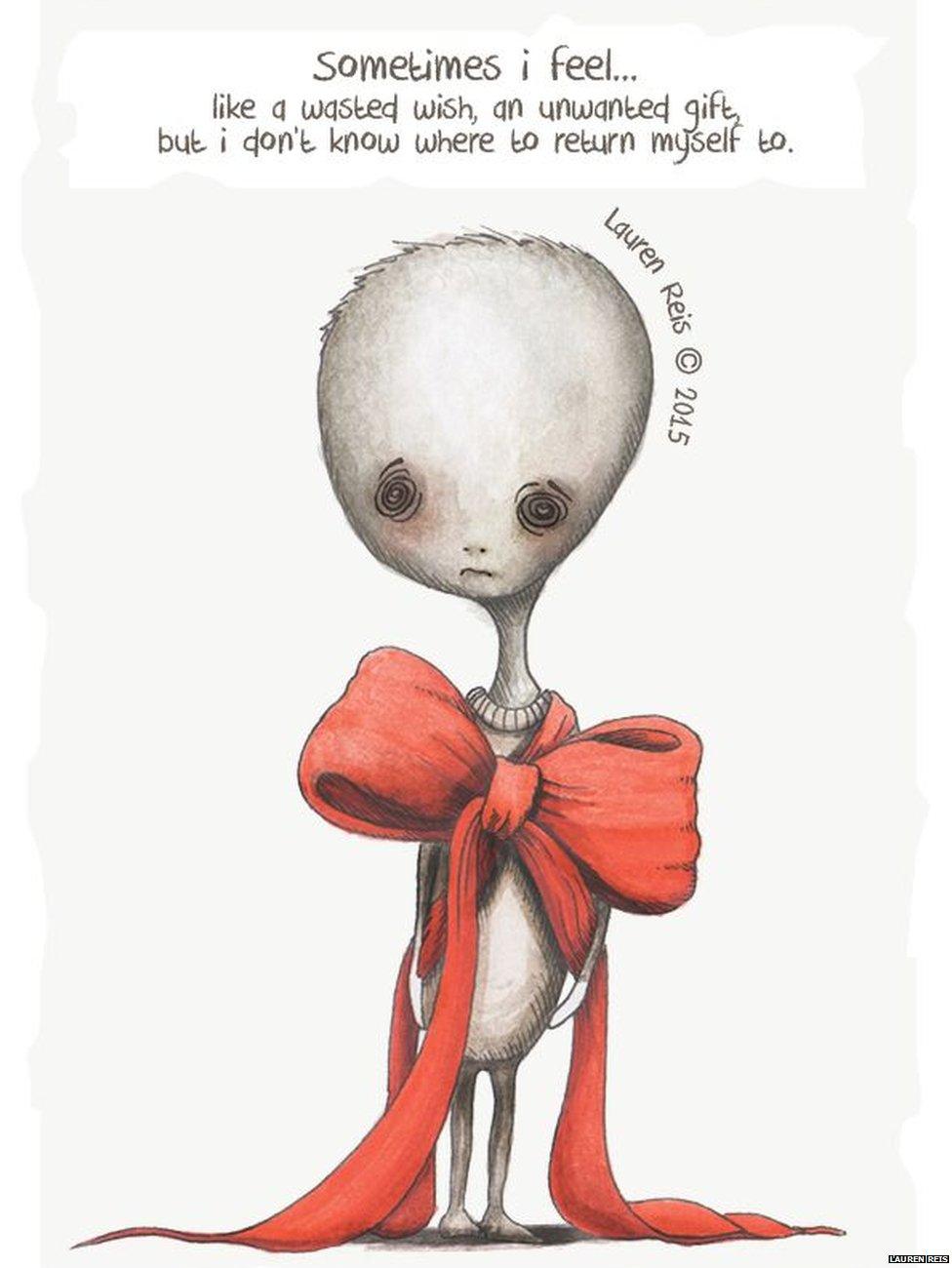
"When people looked at the pictures of 'Selfie', they felt it was a selfie of them."
Lauren Reis created the character selfie after managing a mental illness herself.
She's also done illustrations for Sane, Rethink and Mind.
"Charities have reached out to me after recognising people want to talk about mental health in this way.
"An image is almost more direct than a whole bunch of words, it just seems to do it quite instantly.
"Plus they translate across different cultures and class levels and languages. These illnesses are complex enough without having to cope with that as well."
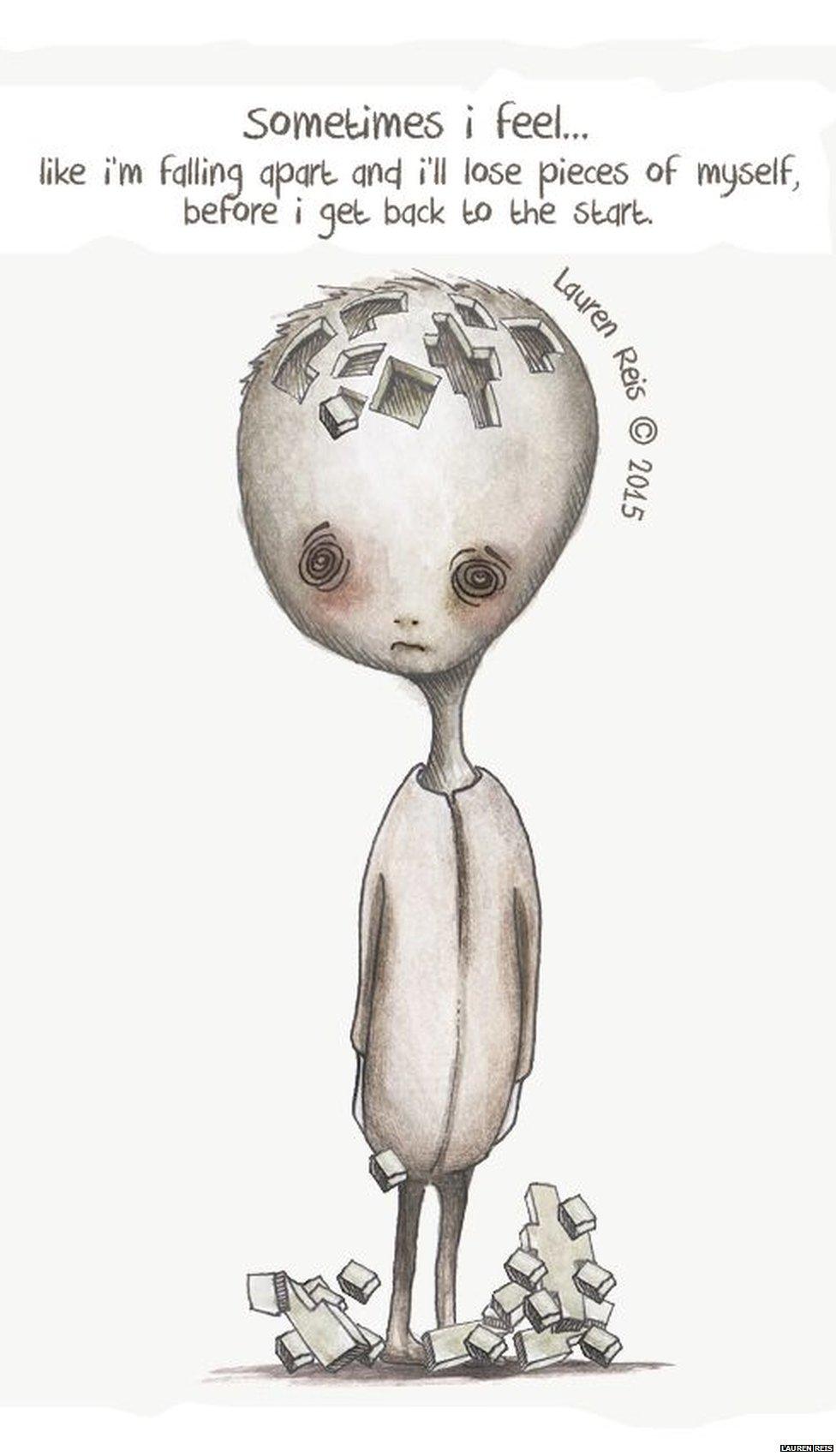
"Some of the things Selfie would come out and say were very real, very open and very honest, which is probably why people connected with 'Selfie'.
She thinks more materials need to be available to help people open up about how they are feeling.
"I think people find information on mental health websites too textbook and it doesn't deal with the feeling and the emotion. You can see something in an image that doesn't belong in words. More humanity. I just think if there were more materials out there that people could latch on to, people wouldn't be so reliant on sharing a one-off image on social media."
BBC Advice has help and information if you are worried about mental health.
For more stories like this one you can now download the BBC Newsbeat app straight to your device. For iOS go here, external. For Android go here, external.